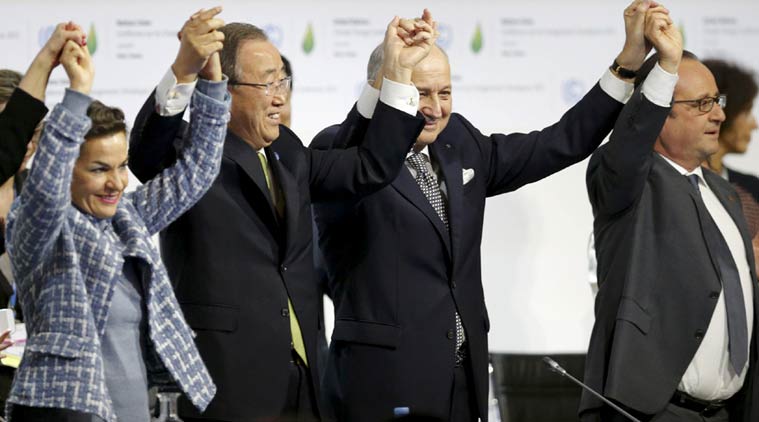
COP21 in Paris ended on Saturday night with a global pact to reduce emissions and keep global warming below two degrees.
It was the first time that all 196 participating countries agreed on such a deal and as such now is a good time to reflect on the eventful two weeks.
While it is too early to be enthusiastic, from my perspective the Paris agreement is an important and essential step in the right direction. Many scientists see the agreement as a surprising success but they leave to us whether this “historic achievement” (Lord Stern) will be a binding contract for the future. For that to occur, at least 55 parties which produce over 55% of the world’s greenhouse gasses, must become party to the agreement.

This post will examine possible directions the debate will shift in the coming years. I will analyse and critically reflect on media coverage from COP21 and focus on public attention over time, based on data from Google Trends. Google Trends is a public web facility that provides information how often a specific search-term is entered into the Google search screen relative to total search-volume. The data is presented as a score between 0 and 100.
Google Trends cannot present an absolute number of queries but the search interest could be seen as an indicator for public attention on different topics or terms. However we should interpret the data carefully and should use the tool more like a starting point for research in the field of communication science.
Figure 1 (below) shows the search interest for the term Climate change over the past three years.
We can see some ups and down in 2013 and 2014 but overall the attention stays at a low level. On the right end of the figure, with the start of the COP21, the search interest reaches its maximum. We can therefore reasonable assume that the conference in Paris had a big influence on the public interest about climate change. If we look back on the past climate conferences in Warsaw (11.11-23.11.2013) or Lima (01.12-12.12.2014) we cannot see any attention peaks. Here we can ask, for example, if the public agenda is more affected by the event itself or the media coverage which usually increases during the events? Further, we should look at what other factors influence Google Trends? Figure 2 shows a comparison for the search terms Climate change and Paris agreement for the last seven days.
 We can observe a rise of the search-interest for both terms in the crucial period of the conference. The public started to google Paris agreement with the beginning of the last day of the conference just after the participants defined this term and also after the announcement that an agreement between the participating countries is realistic. These developments also affected the public attention for climate change in general. The decreasing search interest at the end of the conference could be explained with the issue attention cycle. Climate change will be replaced at the center of public awareness by different issues like the conflict in Syria or the refugee crisis.
We can observe a rise of the search-interest for both terms in the crucial period of the conference. The public started to google Paris agreement with the beginning of the last day of the conference just after the participants defined this term and also after the announcement that an agreement between the participating countries is realistic. These developments also affected the public attention for climate change in general. The decreasing search interest at the end of the conference could be explained with the issue attention cycle. Climate change will be replaced at the center of public awareness by different issues like the conflict in Syria or the refugee crisis.
